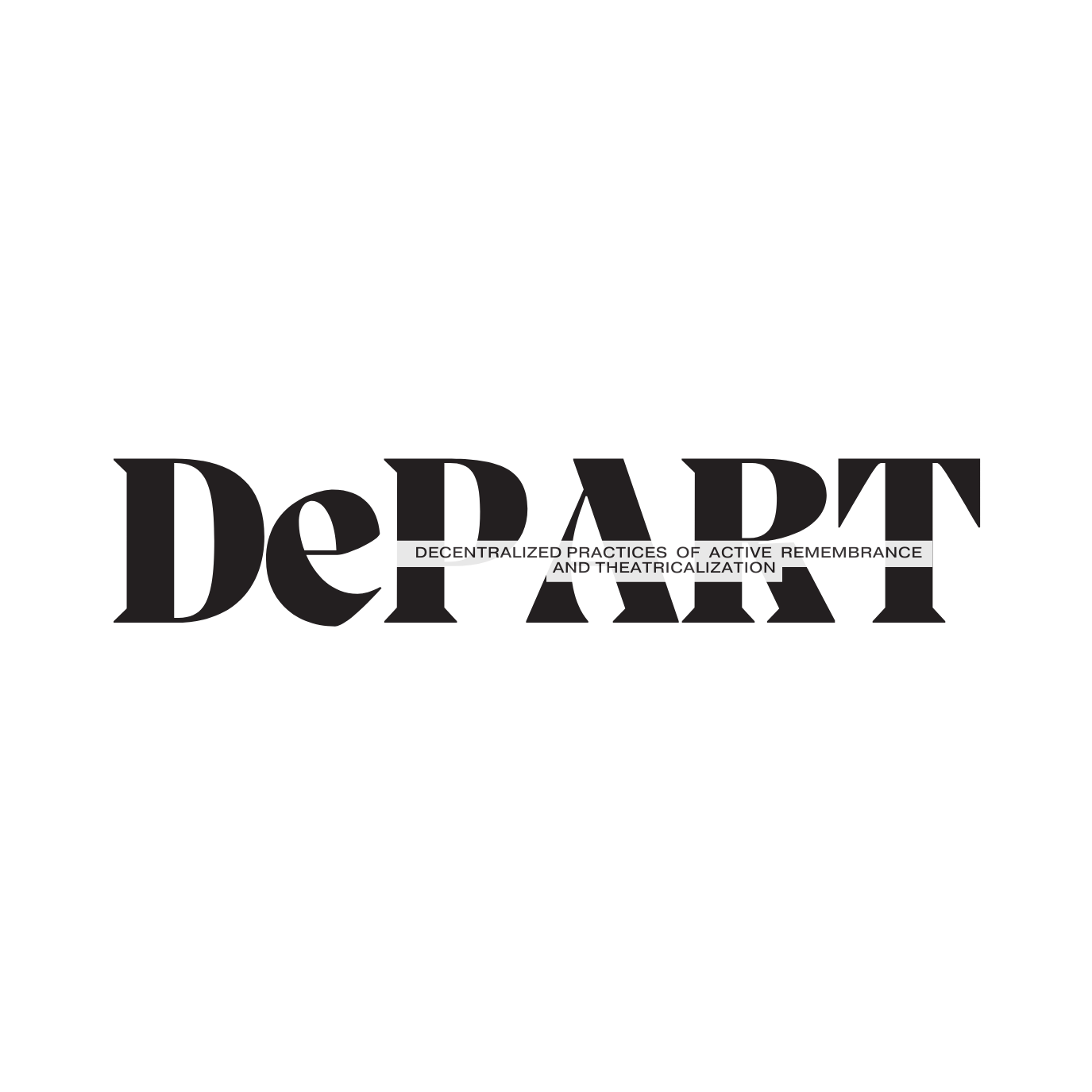The audio installation ALS ALLE OHREN HÖREN KONNTEN is a participatory and performative piece that focuses on the practice of active remembrance. Through the establishment of memory sponsorships, letters are created that are addressed to individual persons, to Rom*nja and Sinti*zze, whose lives were lost during the Porajmos or Samudaripen, the genocide of Romani people during World War II. The installation aims to reclaim their memory and give advocacy for their stories.
The letters are written by Romani and Sinti authors, active makers and movers of communities, and supporters, and they form a bridge between the past and the present towards a caring future. Through their voices and practices of resistance, the installation provides counter-narratives to erasure and forgetting, creating spaces for mourning.
As a temporary and wandering memorial, the installation marks forgotten/erased places of oppression, such as Forced Labor Camps (Zwangsarbeitlagers). Its narration of care honours the earth and body as the origin and carrier of memory and history, and it describes care as a beginning. The installation also questions the possibilities of a responsible culture of active remembrance and storytelling through sound and speech.

is an audio installation that actively remembers the persecution of Roma and Sinti people during World War II
How can we expose the dominant historiography's shortcomings, one-sidedness and fragmentation?
Which voices, and therefore which knowledge and positions, are particularly relevant to the creation of archives of the Holocaust and those persecuted during the Holocaust?
How can individual biographies from collective oblivion be rewritten in the here and now? How can individual stories be linked to the reality of life today?
Memories last as long as someone talks about them. History books are important but mostly biased. History lessons provide a basis but are often incomplete. Whose story are we really telling? Memory cannot be static. It must be accompanied by activity, education, debate and engagement. If we do not take the time, make the effort and make it our goal to retell the stories of our past, we are doomed to forget them. so it is easy to repeat the mistakes of history, including wars and genocides.
ALS ALLE OHREN HÖREN KONNTEN is a public installation that presents audio recordings of 50 personal letters recorded at a location relevant to the local history of Porajmos. The letters lend their Roma (and, where appropriate, non-Roma) writing voices and personal practices of remembrance to the existing format of the installation. The installation is both an open archive and a method of collaborative research. With each geographic location, new voices of contemporary Roma communities are channelled into the installation, addressing the local victims of Porajmos (the Roma Holocaust) in personal voice messages. The authors of the letters link their own stories to the biographies of the persecuted of the past.
We want the audio installation to offer its participants and recipients the possibility of active remembrance through the practice of the so-called Erinnerungs-Patenschaften (Memory-Patronage).
Our aim is to mark and reclaim places that have lost their historical significance, where minorities have been displaced, and where events of oppression and violence are obscured. The work is inherently confrontational. It argues that community memory can be strengthened through the voices of those who are fighting today for the advancement of Roma and Sinti rights and by giving a voice to those who continue to suffer oppression today. By countering the past and challenging rigid methods of historiography and memory, we engage in ongoing community work, creating temporary memorials, caring for the past and vowing personal responsibility for the future.
PAST
ALS ALLE OHREN HÖREN KONNTEN was first exhibited in the summer of 2021, and it focused on land as a 'natural archive', located on the former - now unmarked - Salzburg Maxglan forced labour camp site. Along the course of the local stream (Glan), 50 metal pipes covered with concrete were impaled into the ground, from which the audio letters were sounded. To listen to a letter, visitors have to bend close to the ground, bow to the memory of the past, listen and concentrate on a personal memory written by one individual to another rather than on history as a whole.
While the letters that made up the original installation were spoken from the ground around the former forced labour camp - the so-called "Zigeunerlager" in Maxglan Salzburg - they commemorated the victims there and focused on the voices and thoughts of Austrian and Eastern European Roma and Sinti artists, activists, academics and social workers; the sound installation has now become a travelling memorial that highlights and focuses on the history of Roma oppression in cities and countries across Europe, with the aim of empowering communities and promoting active commemorative work.
timeline of project
First project stage 2021-2022
Project foundation/conception - spring 2021
Premiere Salzburg Leopoldskron-Maxglan - June 2021
Guest exhibitions/festival performances
Salzburg, Vienna, Prague
Autumn 2021 - Summer 2022
Second project stage 2022 - 2024
Separation from the study context / conceptual expansion - Autumn 2022
Country focus: HUNGARY
CURRENT PHASE: Archive expansion / re-stocking - since spring 2023
Community Involvement / local network/
Workshop Facilitation - Spring 2023
Guest exhibitions
STEREO AKT FESTIVAL - Spring 2023
Budapest Open Air Biennial - autumn 2023
Development of a multiplier training/tool kit
Collection of methods for independent multiplication of the practice and the installation format - Winter 2023 onwards
Third project stage 2023 - 2024
Adaptation of the project
Local contextualisation in other regions



